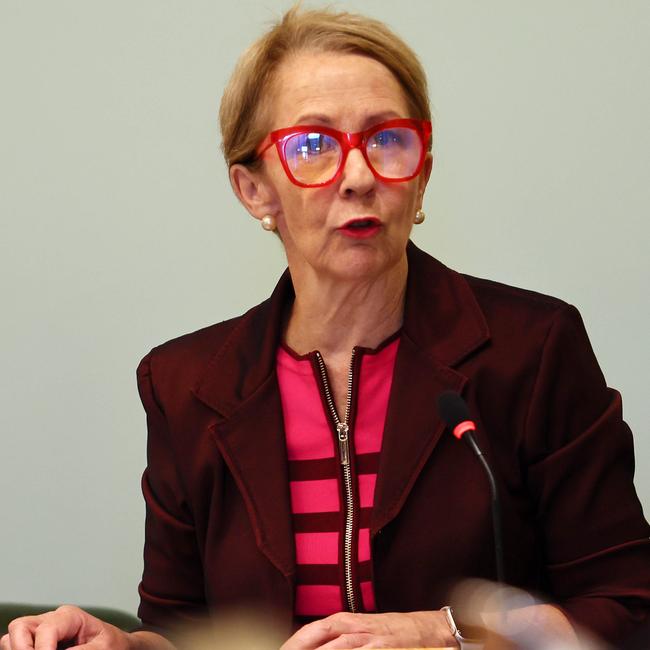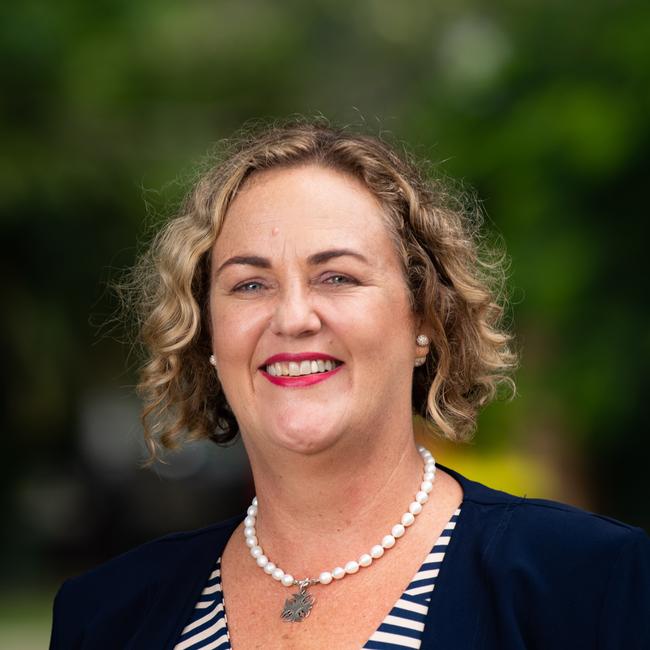How the State Government plans to fix Queensland’s teacher workforce crisis
Education Minister Di Farmer is set to meet with key stakeholders to map out a way forward to solve the teacher workforce crisis with several options on the table. VOTE IN OUR POLL
Education
Don't miss out on the headlines from Education. Followed categories will be added to My News.
Four-day weeks, wiping HECS debt, one-off bonuses, and pay rises based on a school’s remoteness - these are the ideas to solve the staffing crisis in regional and remote schools.
Education Minister Di Farmer will bring the state’s key stakeholders together next week for a schools summit to map out a way forward, with the State Budget looming next month.
Queensland Association of State School Principals president Pat Murphy said introducing salary increases linked to a school’s location was one proposal on the table.
There is an existing ‘points system’ within state schools. Staff who work at the most remote schools get 7 points per year, while someone at a metropolitan school gets 1 point annually.
Mr Murphy said the idea was potentially linking a wage increase to the points system.
“So if you teach for one year at a 3-point school, at Blackwater for example, we could give that teacher a 3 per cent additional wage increase on top of their base salary,” he said.
Queensland Secondary Principals’ Association acting president Kirsten Ferdinands said various other financial incentives had also been put forward.
“Certainly attraction around payments has been mentioned - so remote teacher positions starting at a higher pay scale, but equally, a retention payment after so many years’ service in these areas,” she said.
“I’m also aware of potentially removing HECS debts for certain areas for a contracted time.”
Changing school hours and ditching the traditional school week are also on the radar.
“We’ll be looking at the normal school timetable of 9am-3pm and seeing if we can become more flexible?” Ms Ferdinands said.

The Courier-Mail understands there were previous discussions within areas of the Department of Education on greater flexibility in parts of the state facing crippling staff recruitment issues, particularly the Far North and North West.
This included proposing a four-day schooling week to attract staff, guaranteeing them a long weekend, and also potentially easing stress on students in remote communities who had to travel significant distances from their home to get to the classroom.
However, it is understood this proposal is no longer being considered.
QASSP president Pat Murphy said he was aware four-day weeks and flexible school hours had been similarly used in other countries, such as England and America.
“But it has never been seriously discussed in the state school system in Queensland,” he said.

Queensland Teachers’ Union president Cresta Richardson said any school wanting to make schedule changes had to go through a rigorous consultation and approval process.
“Flexible timetabling is one initiative that can help attract and retain teachers, particularly in regional and remote areas suffering from ongoing teacher shortages,” she said.
“The QTU is a key stakeholder in the ministerial roundtable which provides an opportunity to shine a light on the impact the teacher shortage is having on member teaching conditions and student learning conditions. Discussions held will include attraction and retention statewide.”
A Department of Education spokeswoman revealed some state schools in Far North and West Queensland have a seven-week summer holiday, starting one week before the rest of the state.
“If a state school wants to consider changes to their school hours to meet the needs
of their school community there is a rigorous process that must be undertaken before
approval by the Regional Director,” she said.
“This process includes full consultation with parents, students, teachers and stakeholders.
“The department is not considering any proposal for schools to move to a four-day week.”
TPAQ State Secretary Edward Schuller called for greater consideration around giving school staff and local communities a greater say in what they believe would help.
“The teacher shortage crisis, student discipline and workload burden all come back to one thing - a centralised system,” he said.
“Rural schools have additional challenges on top of these existing issues. Teacher retention in the regions has long been a challenge.
“The solution is not to have another departmental process, but rather fix the critical issues that we face in education.
“Local schools must have the autonomy to make decisions like these. But it goes beyond this issue of a 4-day school week.”
“Local schooling communities need to be able to make decisions on student discipline, curriculum, and staffing arrangements.”



